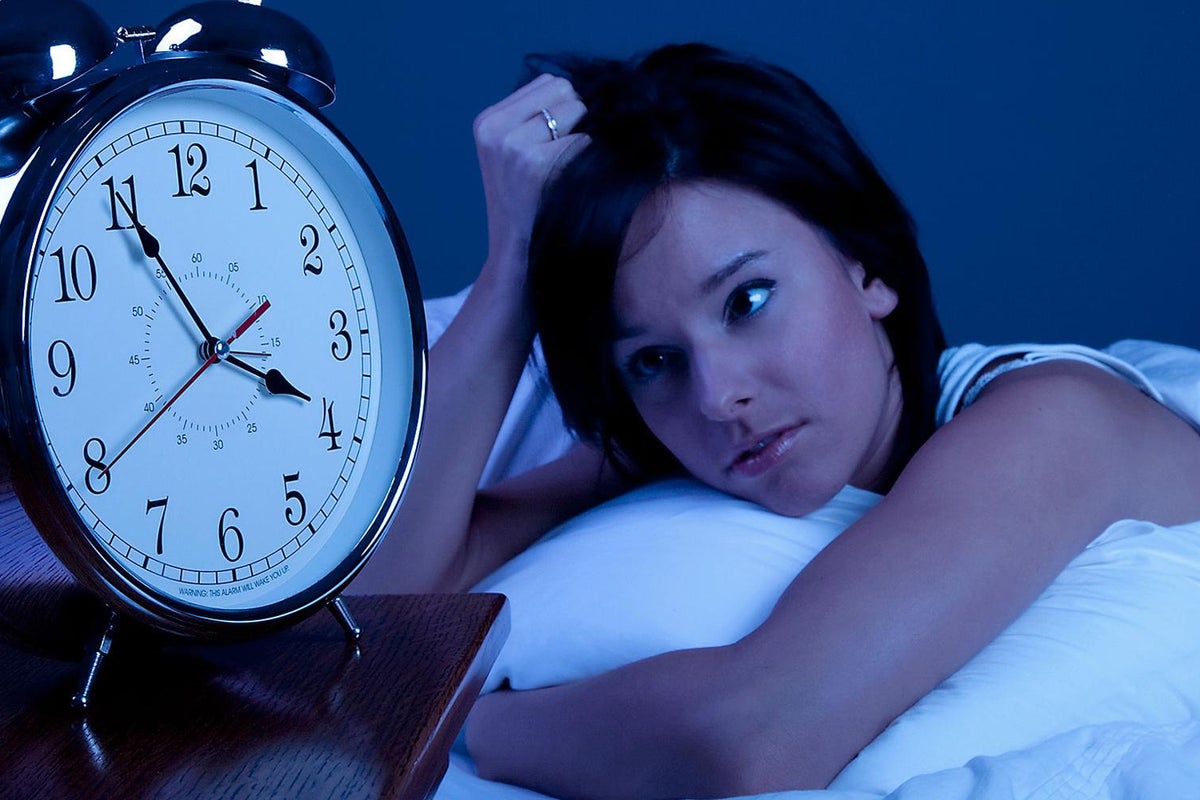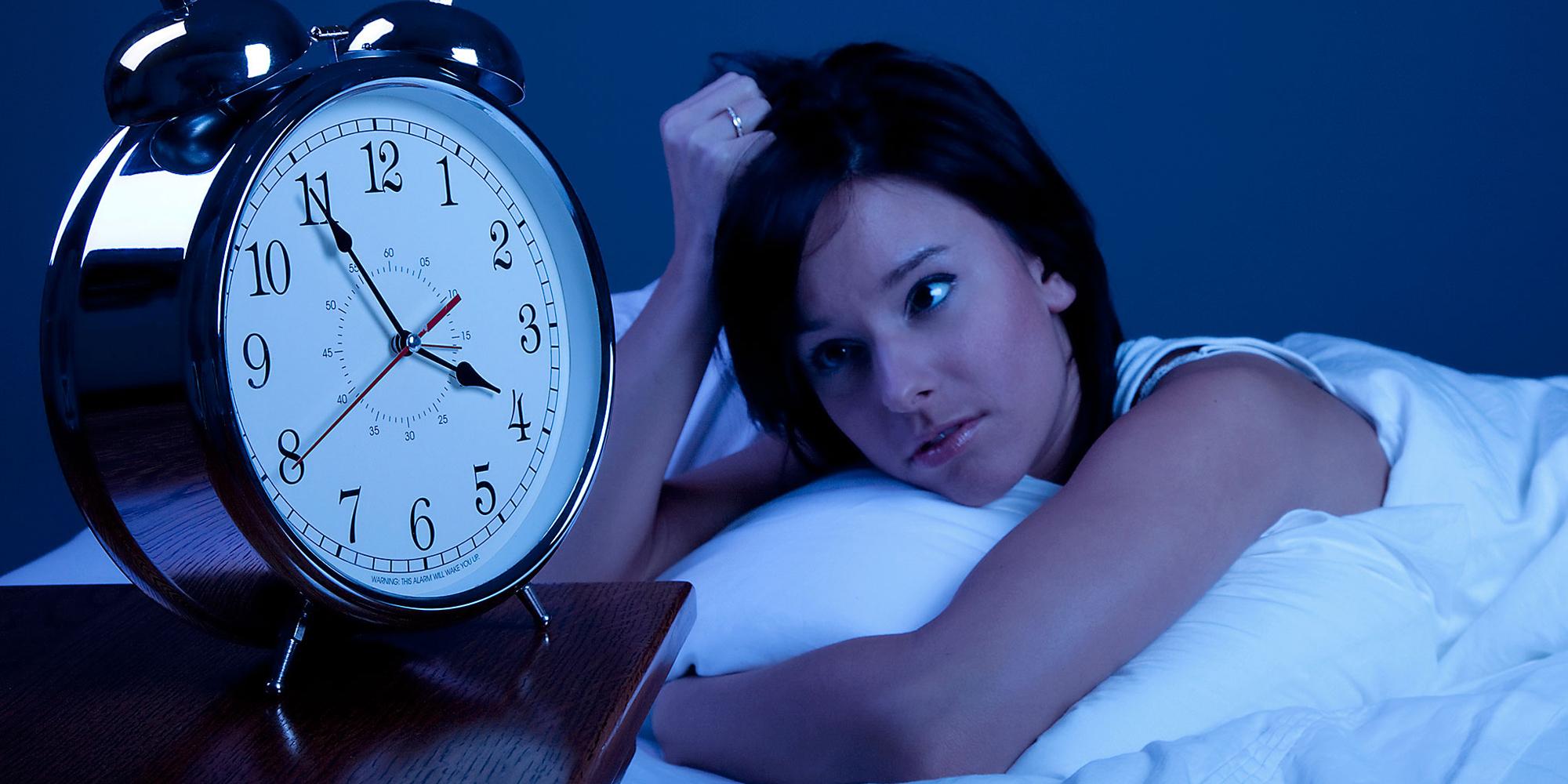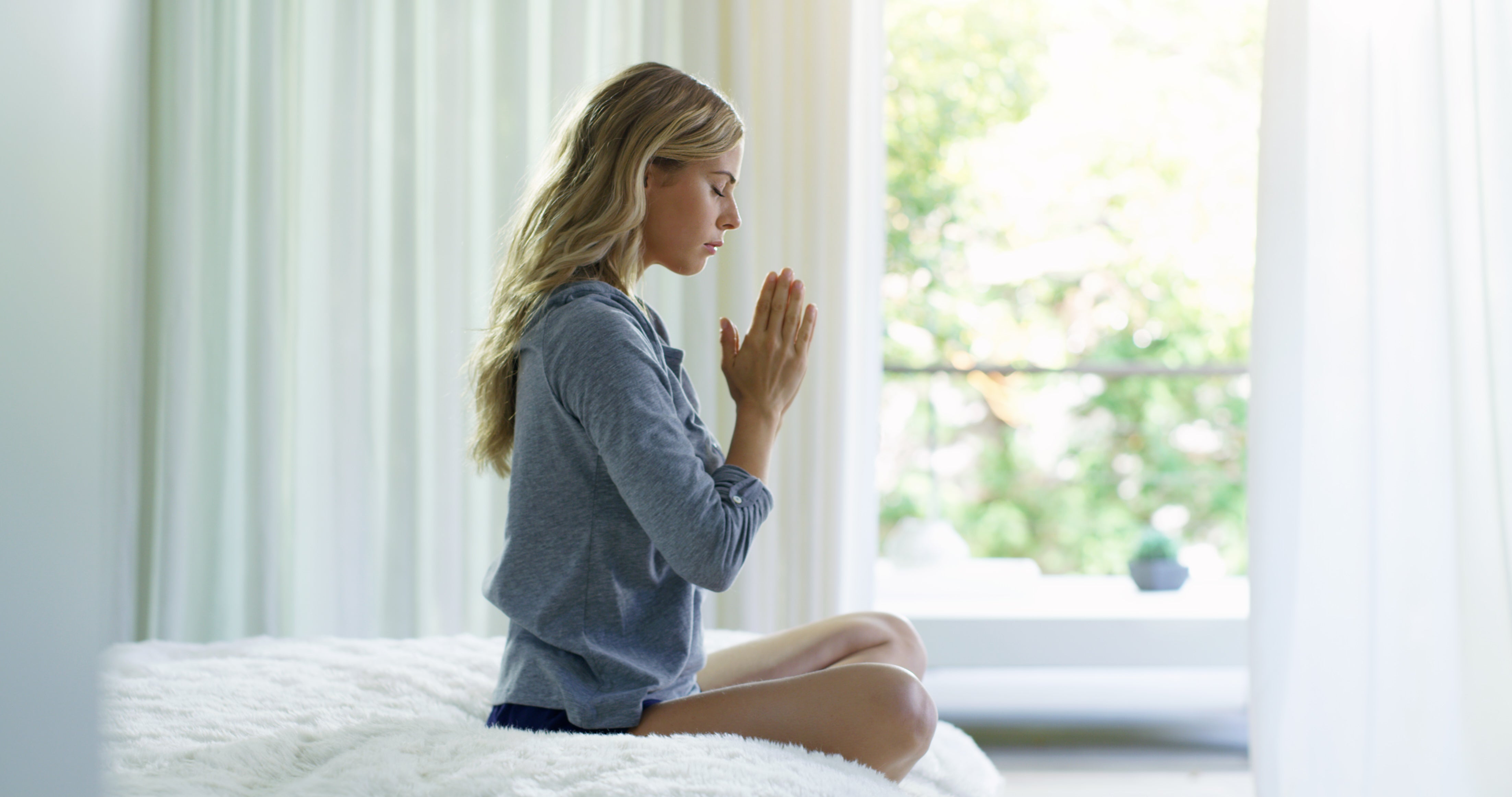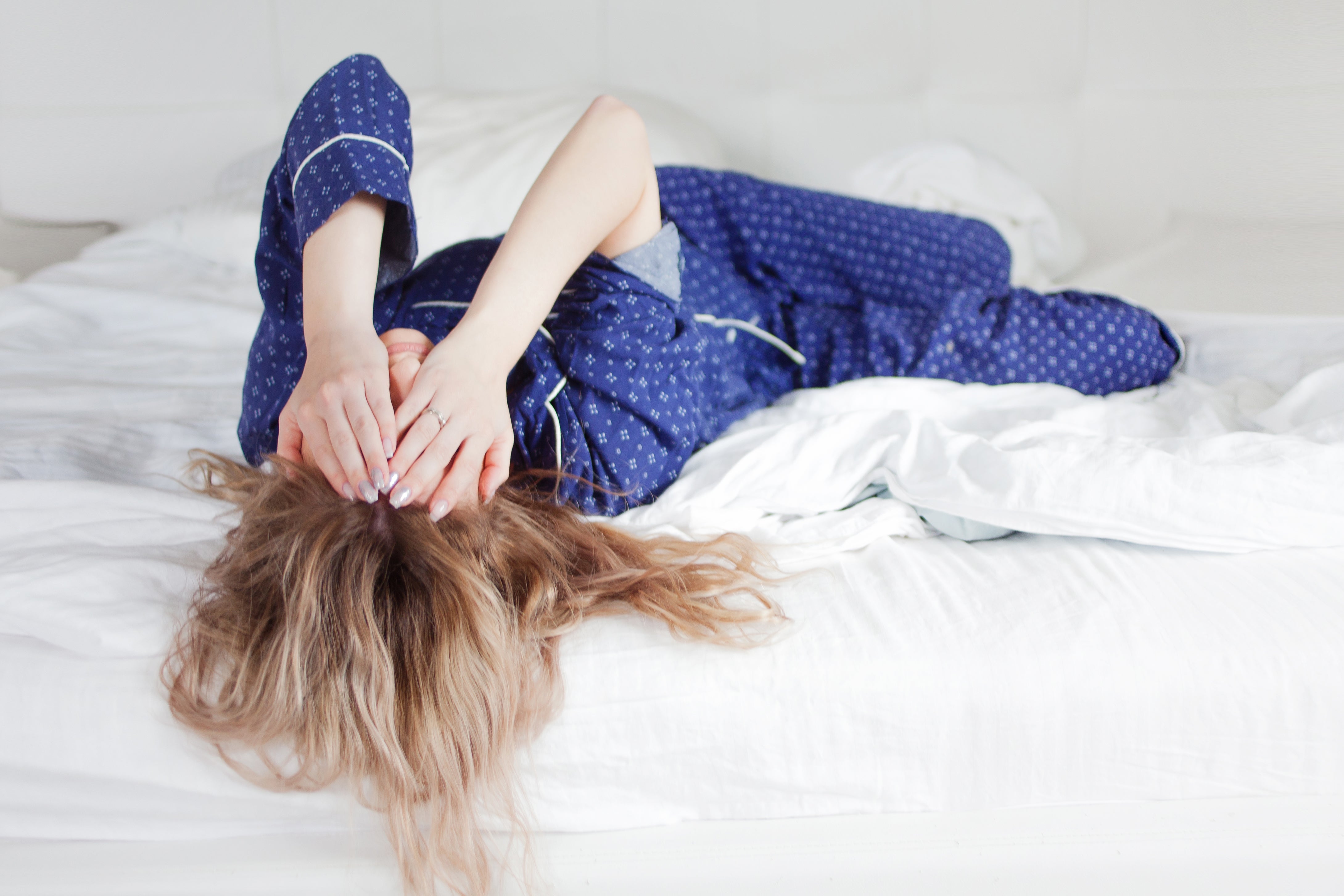I keep waking up at 4am. Is it stress, or is it the spirit world?

Why do I randomly wake up at the same time each night? It’s always 4am on the dot. I’m starting to wonder if it has some special significance – beyond sheer annoyance. I’ve tried eyemasks. Relaxation techniques. Electrolyte sachets with added magnesium. Nothing works. Every night: 4am.
A 2021 study titled The Different Faces of Insomnia found that 40 per cent of us experience early morning waking, and have trouble falling back to sleep again. The typical reasons trotted out often include the menopause, insomnia, stress, ageing, medications, diet, and pain. But, lying awake in the quiet of the night researching my problem, I come across another, altogether more exotic explanation: the spirit world.
According to folklore, the “witching hour”, variably said to be between midnight and 4am, is when the veil between the living and the spirit world is believed to be paper-thin, making communication with spirits easier; waking up signals that you are spiritually in tune. It may, if you believe such things, indicate astral travel – the soul returning to the body after traversing other universes. My penchant for 4am rousings might mean that spirit guides are sending important messages, or guiding me towards my destiny.
In desperation, I decided to look into the woo-woo rationale behind these claims, as well as the more scientific explanations, in the hope I might find a solution. If that means accepting that a guardian angel is trying to alert me to important news, or that my racing mind is egged on by an overactive third eye chakra, then so be it. I don’t want to knock myself out with sleeping pills – or scroll the news headlines on my phone at dawn.
A-list acupuncturist Ross Barr, who runs sessions out of Claridge’s Spa, has a client list that includes Prince Harry and Meghan Markle, both of whom had regular appointments with him as part of their pre-wedding wellness routine. Repeatedly waking at a particular time, Barr tells me, has huge significance. “It is rarely random. Eastern medicine figured out long ago,” he says. “It’s often a clue pointing to a possible imbalance in a specific organ or an underlying emotional cause.”

According to the traditional Chinese medicine (TCM) organ clock, each three-hour window is linked to a different organ system. Waking at 1am to 3am, Barr tells me, is liver time. “It’s often associated with internal heat, frustration, stress, or alcohol,” he says. Waking between 3am and 5am, meanwhile, signals issues with the lungs. “[It’s] more about grief and loss, or typical lung pathology like asthma.”
But waking too early before your alarm can also suggest that you’re running on adrenaline, he says. “It’s like your body is bracing for something, as if it’s trying to get ahead of danger or the day itself.”
Others believe that imbalanced chakras – energy centres thought to govern different physical and emotional functions – are the culprit. The third eye, which is related to intuition and sleep regulation, and root chakra, associated with feelings of security and grounding, are often linked with sleep disturbances like insomnia or restless sleep.

“At around 4am, the throat and the heart chakras are functioning at their strongest,” says Padna Coram, a spiritual and integrative lifestyle and wellness expert at London’s Hale Clinic. She claims that if the seven chakras are not flowing freely along the spine, from the base to the crown of the head, the body wakes up to alert you to fix the problem.
“It’s not just sleep disturbance – it’s the soul gently tapping or knocking. The body is trying to get your attention through the subconscious.” In my case, she says, waking at 4am repeatedly could mean there’s unspoken emotion, suppressed grief, or a truth that needs to be expressed. She advises facing problems head-on. “We either want to stick our heads under the sand, we get irritable, angry and highly strung, or want to go out to get distracted,” she says, “but it’s important to voice our concerns even if it’s just to ourselves, so that the mind and body can process them.”
Rajmata Sangita Devi of Kathiwada, who is the founder of the wellness retreat Kathiwada Raaj Mahal and also runs wellness programmes at Kathiwada City House in Mumbai, puts an upbeat spin on waking at 4am. “It is fortunate,” she says. “It means you are spiritually in tune. It’s a time to connect with your higher self and to have a deeper meditation when the mind is fresh.”

This pre-sunrise or pre-dawn period, known in Hindu as Brahma Muharta, is considered the most auspicious time for spiritual practice, meditation, and inner clarity, when our prana (life force energy) is said to be strongest. It occurs one hour and 36 minutes before sunrise, depending on your location, and roughly between 3.30am and 5.30am, lasting for about 48 minutes.
“Don’t struggle. Sit up straight and gently close your eyes,” she advises, “and meditate or breathe.” She adds: “If you go to bed at sunset and wake at sunrise, it’s seven or eight hours of sleep. It should be a natural sleep-wake cycle.”
But what does cold, hard science have to say? Predictably, the explanation is less mystical. “Waking around 4am is incredibly common and perfectly normal,” says Dr Guy Meadows, a sleep specialist and founder of The Sleep School. “This is the time our bodies naturally begin preparing to wake,” he continues. “Core body temperature starts to rise, cortisol – a key waking hormone – is released, and adenosine, the sleep pressure chemical that helped us drift off is now at its lowest. So, when we briefly surface at the end of a sleep cycle, it’s much easier to become fully awake.”
What matters most, he says, is how we respond to these natural awakenings. “If we panic, check the clock, or try to force ourselves back to sleep, we can unintentionally train our brain to wake up at that time night after night.”
Dr Allie Hare, president of the British Sleep Society and co-founder of Grace Sleep (gracesleep.clinic), tells me that she is not aware of any research suggesting that 4am waking is related to meridians or the spirit world. Instead, there are other factors at play. “By 4am, you are close to satisfying your need for sleep – your homeostatic drive – and so it can be more difficult to return to sleep than it would be if you had a similar wake earlier in the night,” she tells me.
Waking repeatedly at the same time each night is rarely random. Eastern medicine figured that out long ago
A-list acupuncturist Ross Barr
Sleep scientist Russell Foster, a professor of circadian neuroscience at the University of Oxford and author of Life Time: The New Science of the Body Clock, and How It Can Revolutionise Your Sleep and Health, explains that around 70 to 90 minutes after falling asleep and experiencing non-REM sleep (stages one to four, with three and four being deep sleep), we go into REM sleep – rapid eye movement sleep, when we are much more likely to wake up.
After REM sleep, we return to non-REM sleep (stages one-four), and after another 70 to 90 minutes, we go into REM sleep again. We usually experience five of these non-REM/REM cycles each night. “In the morning, we wake naturally from REM sleep, when we are much more likely to wake up. But every time you enter a REM period of sleep through the night, you are more likely to wake up,” he says.
“This can occur naturally, or prompted by the need to empty your bladder, or due to the hormonal and temperature fluctuations of perimenopause, a partner snoring or light coming into the room. Because our non-REM/REM cycle is very consistent, night-time waking from REM sleep can occur at a very similar time on consecutive nights”.

I’m going to try some self-honesty and admit to myself that I have some financial insecurities and unresolved grief – whether this gets my chakras spinning, and my lungs cleared, is another matter, but it feels a lot easier than communing with spirits in the magic hour. As much fun as it sounds to enjoy an astral sojourn, the truth is, all I want is a deep night’s sleep – in other words, to put this whole matter to bed.
[title_words_as_hashtags




